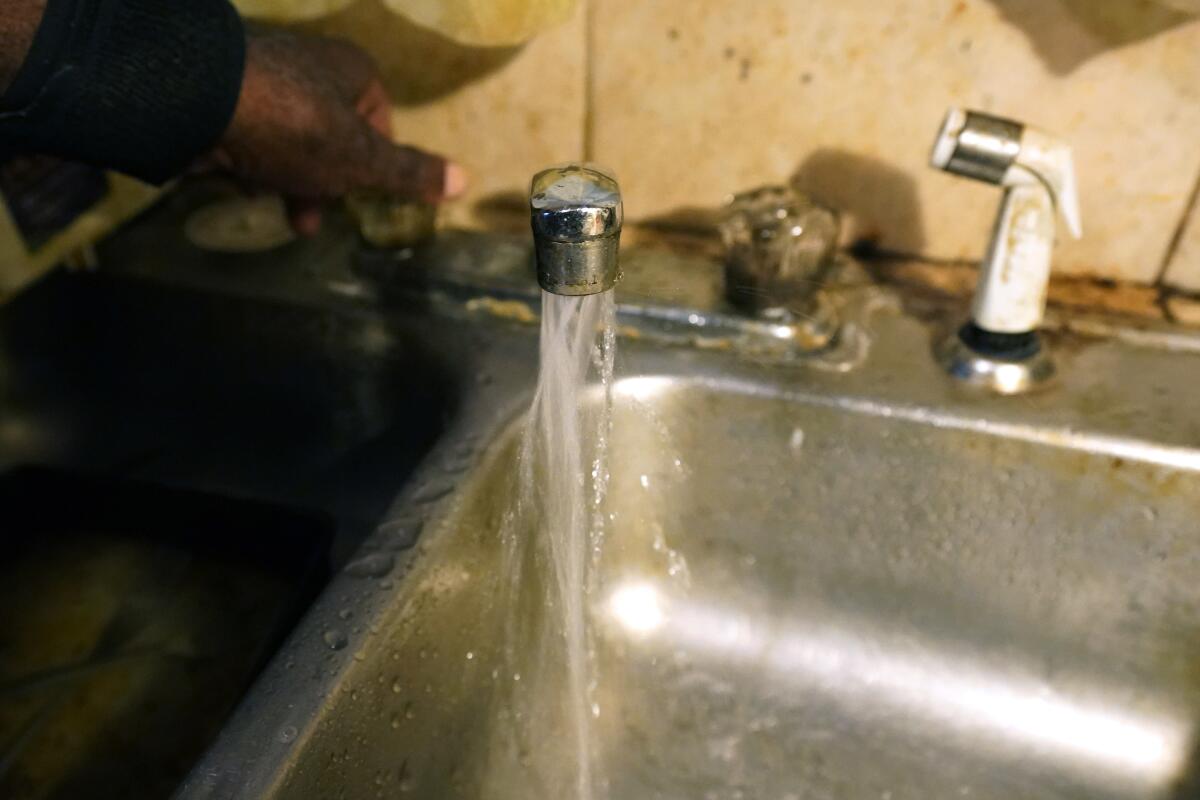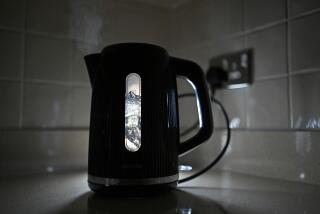Mississippi officials say water in state capital is safe one day after E. coli scare

JACKSON, MISS. â One day after Mississippi health officials told residents in the stateâs capital that dangerous bacteria could be in their tap water, the state health department said Friday that city water was safe to consume.
Mississippi health officials lifted their health advisory after a new round of test results did not find E. coli in Jacksonâs supply. The announcement reverses the Mississippi Department of Healthâs Thursday instructions for Jackson residents to boil their water before consuming it.
The move came hours after Ted Henifin, Jacksonâs interim water manager, said repeat samples taken from the cityâs water system tested negative for E. coli. The new round of results, which were collected from the same locations where state officials reported positive results the day before, show the previous test was probably a false positive caused by lab contamination, Henifin said.
In a statement Friday, the health department stood by the initial test results and dismissed the idea that its lab had been contaminated. Officials have detected E. coli in Jacksonâs water system 29 times since 2003 and during the same period, three times in the nearby suburb of Flowood, the department said.
âClean drinking water and its availability to the public are fundamental to protecting the health, well-being, and safety of everyone, with no exception,â said Dr. Dan Edney, the state health officer.
Earlier on Friday, Henifin did not expect the boil water notice to be lifted after one day because state regulations require officials to obtain clean results for two consecutive days before lifting it.
Greg Flynn, a spokesperson for the state health department, said federal law allows samples from the same site to be submitted within 24 hours, and if negative, boil-water notices can be lifted. The state has more stringent requirements requiring an additional day of clean tests. That state rule was waived in this case after pushback over the extra requirements.
Jacksonâs water met the federal standard, and the health department was satisfied with the results, Flynn said. âThatâs the nice, political way to put it,â he said.
At news conferences Thursday and Friday, Henifin said state officials refused to validate the lab results before issuing the boil-water notice.
âI still do not understand why the Mississippi Department of Health issued the city-wide boil-water notice before confirming the initial results,â Henifin said. âThe damage to confidence in our water system and economic impact to our area businesses is enormous.â
State health officials imposed boil-water notices in Jackson and Flowood after positive results in both cities Thursday. The bacteriaâs presence indicated that the water may have been contaminated with human or animal waste, the department initially said.
Flynn said the boil-water notice is still in effect in Flowood, pending further tests.
Henifin said it was unlikely that samples from Jackson and Flowood would be contaminated at the same time because the citiesâ water systems are not connected and do not draw from the same source.
A federal judge appointed Henifin in November 2022 to oversee reforms to Jacksonâs long-troubled water system after infrastructure breakdowns during the late summer of that year caused many city residents to go days and weeks without safe running water.
The E. coli scare came just days before the expected arrival of a blast of cold weather that could further disrupt the local water infrastructure. Cold snaps in 2021 and 2022 caused frozen pipes and drops in water pressure across Jackson.
The positive tests and boil water notices sent lab technicians scrambling to test samples from 120 locations ahead of the winter weather.
The near collapse of the water system in Jackson, Miss., follows a long history of neglect.
Black residents of Jackson, Miss., decry plans by white-dominated Legislature for more state control
People in Mississippiâs majority-Black capital city say the mostly white state Legislature is trying to encroach on their rights of self-government.
More to Read
Sign up for Essential California
The most important California stories and recommendations in your inbox every morning.
You may occasionally receive promotional content from the Los Angeles Times.












